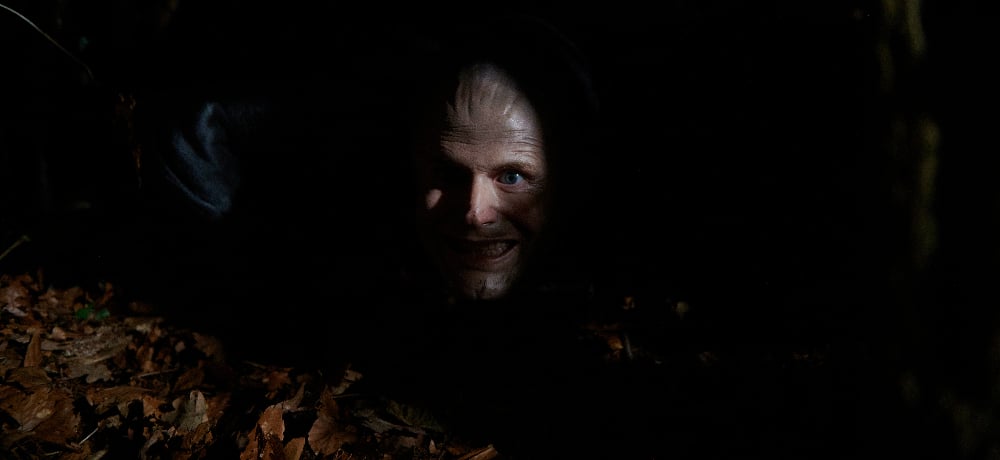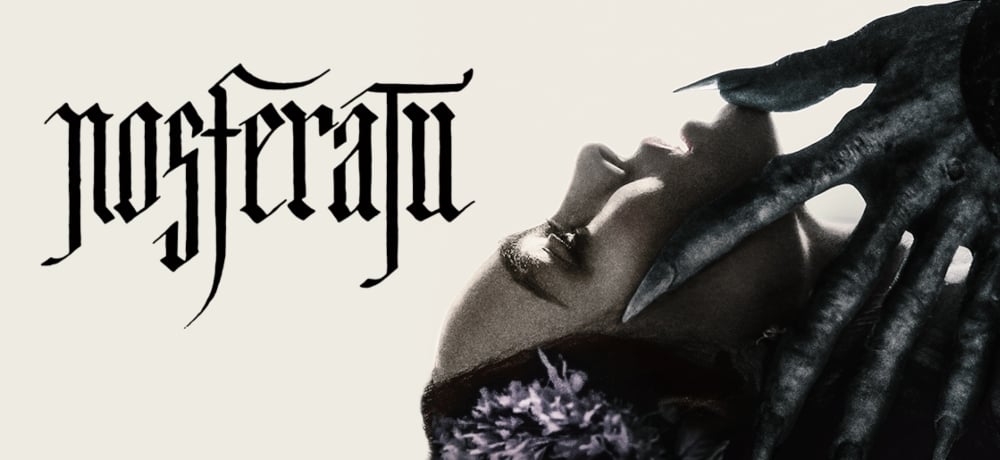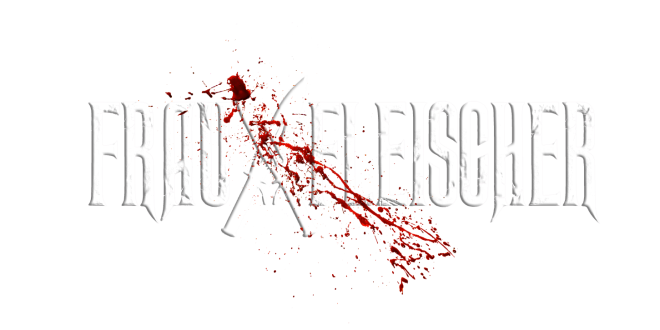Fantastic Fest 2024 Review: DADDY’S HEAD is a Whimsical Folkloric Horror Tale with Bite


Benjamin Barfoot’s feature debut, Daddy’s Head, abides by anonymous tendencies of eerie folkloric horror. There aren’t outright explanations — storytelling is handled with the lightest touch. You’re plunged into a family’s confrontation with a nameless doppeldemon preying on their grief-stricken state. Barfoot doesn’t care why said entity is attacking or from whence it came. Daddy’s Head focuses on a woodland creature with frightening features that include what’s mentioned in the title. Barfoot excels when unleashing his monster’s creepiest attacks, but the story tends to trudge forward without feeling complete. Your patience for whimsical, ungraspable horrors will be tested — unless that’s entirely your vibe.
In Daddy’s Head, Daddy’s dead. Young Isaac (Rupert Turnbull) grieves his deceased father, James (Charles Aitken), taken off life support after a car accident. Isaac now lives in forested isolation with stepmother Laura (Julia Brown), who openly admits she’s not in a motherhood mentality. The orphaned son and widowed wife are haunted by “Daddy’s” presence, an architect whose influence is built into their cubic modern home — but that’s not all. Isaac begins interacting with “Daddy” in the surrounding woods, or at least that’s what Isaac claims to see, as someone or something starts making house calls after dark.
Barfoot most closely honors mimic folklore, perhaps Ireland’s Púca fairy, which can imitate human speech and lurks outside properties. It’s not about rhyme or reason. Daddy’s Head is Isaac’s recollection of supernatural events after James’ sudden passing, which features an evil figure using James’s likeness to trick an immature and vulnerable Isaac. It’s an open-ended horror scenario, the mythological equivalent of “Because you were home” from The Strangers. “Because you were sad.” James’ doppelganger preys on Isaac because it can — whether that works for viewers is a personal preference.
Themes of loss, entrapment, and tragedy rise to the surface of Isaac and Laura’s strained relationship. James was their buffer — the man who loved them equally yet bridged their differences. Turnbull and Brown transform the unimaginable sadness within their characters into separating wedges, drawing tension out of a forced-position mother and the tantrum-throwing boy under her singular care. Laura’s alcoholism leaves her unaware and numb to Isaac’s needs, while Isaac’s behaviors become erratic on account of “Daddy’s” influence. Laura’s divorced friend Robert (Nathaniel Martello-White) adds a missing male figure, but he never takes control. Isaac’s fantastical imagination and Laura’s unhealthy self-medication are accessible for the mimic to exploit, cutting to the raw messiness of human emotions.
Barfoot’s handle on Daddy’s Head is untamed and ambiguous. His collective vision boils down to scare sequences by night and filler in between. Isaac and Laura’s intensified bickering is the film’s glue, but Barfoot doesn’t have directions mapped. Sequences continually end without fanfare, while the film’s climactic encounter fades into the credits. Playing into the folkloric vagueness of inexplicable haunts by moonlight, Daddy’s Head refuses to follow rigid horror formulas that have hard starts and finishes. Barfoot’s microcosmic nightmare exists in a dreamlike fluidity, mirroring Isaac’s memories like a flashback through the terrors he endured at that age. It’s an experiment in perspective that feels incomplete from a storytelling position, whether intentional or not.
There’s no argument that Barfoot executes vicious bouts of psychological and physical thrills. Daddy’s Head is named appropriately because this impish, raven-black figure wears James’ head-slash-face like a flesh mask to horrific results. Isaac sees James as if he were alive and holds conversations with his “father,” which causes us to be frozen in fear — and then there are the regular creature-feature amusements. Isaac sees the alien figure hunched in his bedroom, concealed by darkness, only for the beast to scamper on all fours like a feral animal. There’s a speediness and aggressiveness to Barfoot’s behind-the-camera techniques in these spurts that enhance ghoulish cinematography, maximizing the tingles up our spine. Scares come at a premium and best express Barfoot’s talents. That’s the balancing factor to airier storytelling approaches.
The film’s visual language is fable-like and exceptionally framed, influenced by James’ architectural knowledge. Isaac stumbles upon this awe-striking homestead built by “Daddy,” a warped configuration of sticks like horns and arms sprouting from a hidden den. Everything’s so angular and uncanny, whether the woodland hideout or “Daddy’s” slender body — there’s a literal sharpness to production attributes. Eyes peer through thickets and whisper unsettling teases or peer through the tar-thick covers that hide invaders in plain sight. Appearances are textbook definitions of “Horror” imagery and are artfully composed, drawing viewers like moths to a campfire flicker.
Daddy’s Head is a nerve-wracking manifestation of grief as an inescapable monster. Barfoot’s ability to deliver hold-your-breath creativity as atmospheric dreariness leads to pulse-pounding chills is on display — that’s never in question. What’s harder to grasp is the film’s more freeform narrative, which plays out with spotty connectivity. Scenes come and go with the wind, blowing in and gusting away on whims. Horror is as subjective a medium as any, and Daddy’s Head won’t be for everyone. But the lore-hazy, vibes-only horror fans who’ve latched onto A24’s slate for years? They’ll be championing Barfoot’s latest with equal excitement.
Movie Score: 3/5




